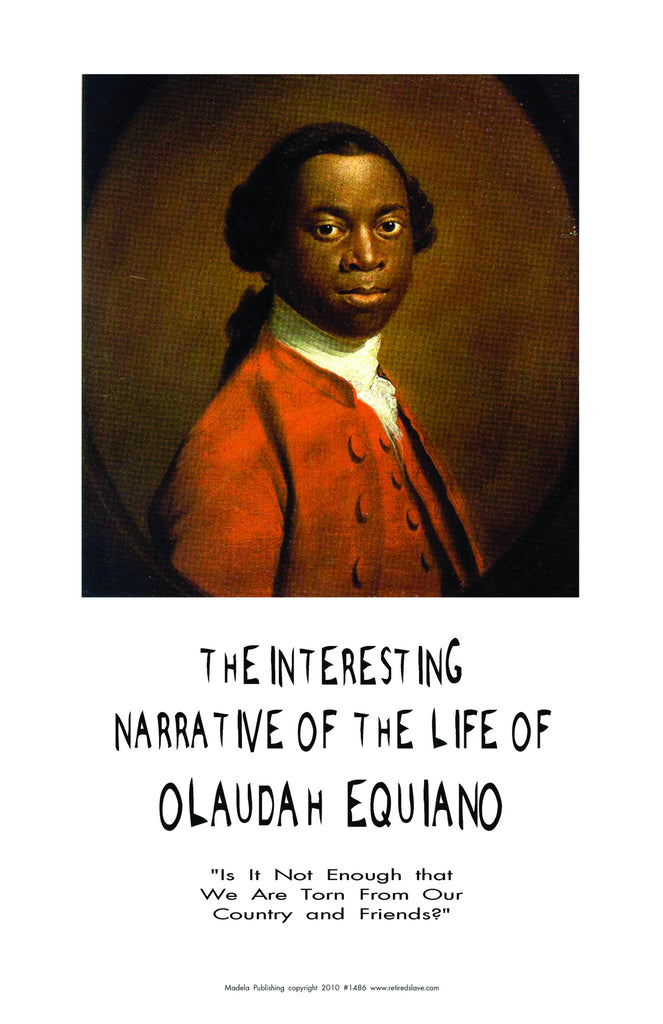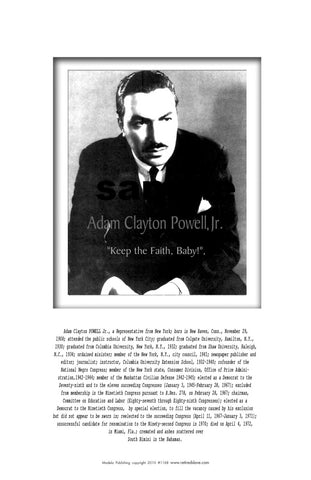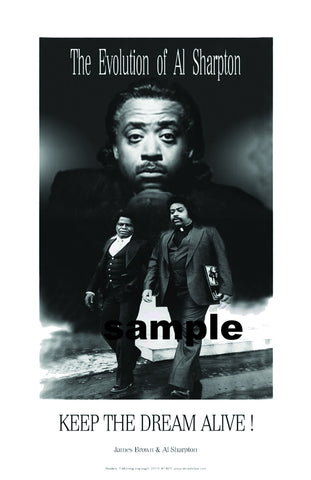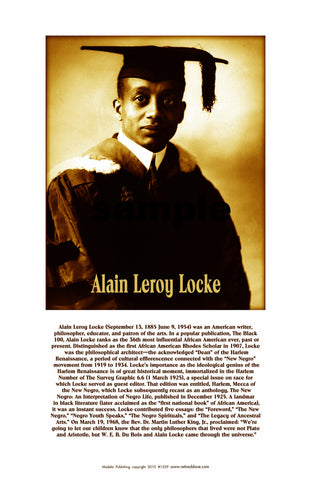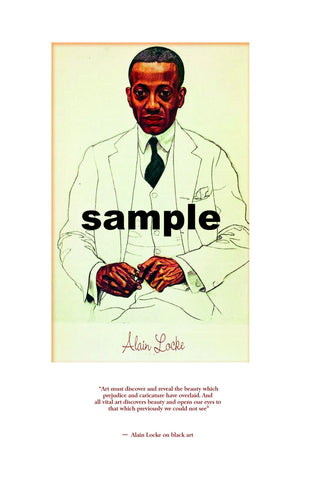Olaudah Equiano #1486
$ 8.00
Caption from poster__
Olaudah Equiano
Gustavus Vassa
1789
Born in Benin in the late 18th century, Equiano was
enslaved as a young boy and passed through a variety
of experiences, many of them horrible; but he managed
to acquire enough learning and independence to
become a major voice advocating an end to slavery. His
Narrative, written in English in 1789, immediately became
a sensation, and has remained a classic source for our
knowledge about the European slave trade from the point
of view of the slave. In what ways does Equiano contrast
slavery within Africa with the sort of slavery he encountered
in the western hemisphere? What sufferings does he
describe on the slave ship crossing the Atlantic Ocean to the
Caribbean? In what ways were slaves cheated by whites?
Olaudah Equiano (Gustavus Vassa) was kidnapped from his African village
at the age of eleven, shipped through the arduous "Middle Passage" of the
Atlantic Ocean, seasoned in the West Indies and sold to a Virginia planter.
He was later bought by a British naval Officer, Captain Pascal, as a present
for his cousins in London. After ten years of enslavement throughout the
North American continent, where he assisted his merchant slave master
and worked as a seaman, Equiano bought his freedom. At the age of forty
four he wrote and published his autobiography, The Interesting Narrative
of the Life of Olaudah Equiano, Or Gustavus Vassa, The African. Written
by Himself, which he registered at Stationer's Hall, London, in 1789. More
than two centuries later, this work is recognized not only as one of the first
works written in English by a former slave, but perhaps more important as
the paradigm of the slave narrative, a new literary genre. Equiano recalls
his childhood in Essaka (an Igbo village formerly in northeast Nigeria),
where he was adorned in the tradition of the "greatest warriors." He is
unique in his recollection of traditional African life before the advent of the
European slave trade. Equally significant is Equiano's life on the high seas,
which included not only travels throughout the Americas, Turkey and the
Mediterranean; but also participation in major naval battles during the French
and Indian War (Seven Years' War), as well as in the search for a northwest
passage led by the Phipps expedition of 1772-1773. Equiano also records
his central role, along with Granville Sharpe, in the British Abolishionist
Movement. As a major voice in this movement, Equiano petitioned the
Queen of England in 1788. He was appointed to the expedition to settle
London's poor Blacks in Sierra Leone, a British colony on the west coast
of Africa. Sadly, he did not complete the journey back to his native land.
Despite these attractive accomplishments, however, Equiano's most
important work is his autobiography, which became a best seller, rivaled
in popularity by Defoe's Robinson Crusoe. He published nine different
editions before his death in 1797; including an American edition (1791),
and German and Dutch editions, 1790 and 1791 respectively. By 1837,
nine more editions had been published. Three editions were bound
together with the poems of another former slave child Phyllis Wheatly,
whose Poems on Various Subjects (1773) was the first collection
of poems published by an African American. Together, their works form
the genesis of a Black written literary tradition.
